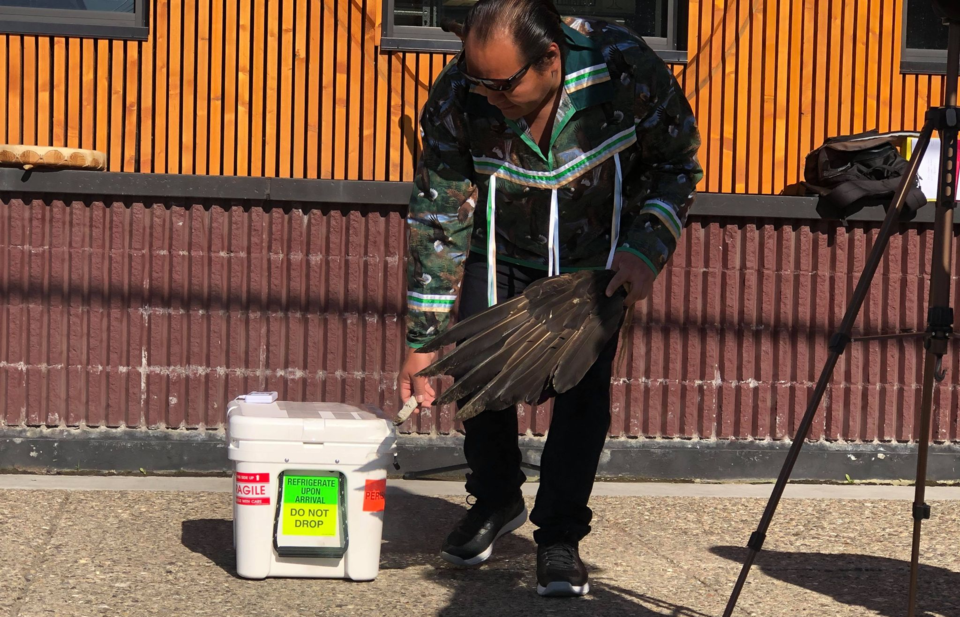The Urban and Away from Home Indigenous Vaccination Clinic pop-up clinic at the House of Ancestors wrapped up after vaccinating more than 1,000 people.
The clinic, which opened on May 11 and ran on select days until May 19, intended to provide a culturally safe and low-barrier space for urban Indigenous peoples living in Prince George to get a COVID-19 vaccine.
In total, 1,092 people were vaccinated at the clinic and 243 of those were walk-in appointments.
“We turned no one away. We wanted to remove as many barriers as we could for the vaccination process,” says Julie Morrison, acting executive director of First Nations Health Authority (FNHA).
“It worked really well everyone was really happy each day,” says Morrison. “We had drumming and smudging of the vaccine every morning and we had music playing and we tried to make it as warm and inviting as we could.”
She says having the clinic at the House of Ancestors was beneficial because it was a familiar space for many people.
“One fellow said he felt more comfortable because he was coming somewhere he was familiar with,” says Morrison. “Someone said else they wouldn’t have had the vaccine if it wasn’t for the clinic. They came and saw how it was unfolding and felt very comfortable there so they decided to get vaccinated.”
The clinic was hosted through a partnership that included FNHA, Northern Health, Lheidli T’enneh First Nation, Central Interior Native Health, the Prince George Native Friendship Centre and Carrier Sekani Family Services (CSFS).
Travis Holyk, executive director of health services for CSFS, said the clinic was a success in part because of the teamwork.
“It really allowed the various organizations to work together under one roof directly so I think that really built relationships as well.”
Holyk said the pop-up clinic was also able to take some of the load off of vaccinations at the Civic Centre by filling appointments where there were gaps and increasing the overall number of vaccinations in Prince George.
He also noted the importance of having a culturally safe and low barrier option in the community. Holyk said one example of this was that the clinic allowed people to come in family groups to offer support to each other.
“This also assisted with things like language barriers so when elders whose first language wasn't English came in it allowed a family member to be with them.”
He said this also helped lessen vaccine anxiety and they even saw examples of mothers supporting their adult children through the process.
“We heard a lot of people say, I wouldn't have come without a relative being with me,” said Holyk. “In terms of vaccine hesitancy, it isn't necessarily that people are against vaccines, so providing encouragement, and support in those situations, where people have fear of needles, it allowed them to come in and be vaccinated.”
Morrison noted FNHA is considering hosting a similar clinic in Prince George for second doses, but first, they are working to provide second doses to Indigenous communities in the northern half of the province.
“The more people who get vaccinated it helps us all in every population,” added Morrison.






